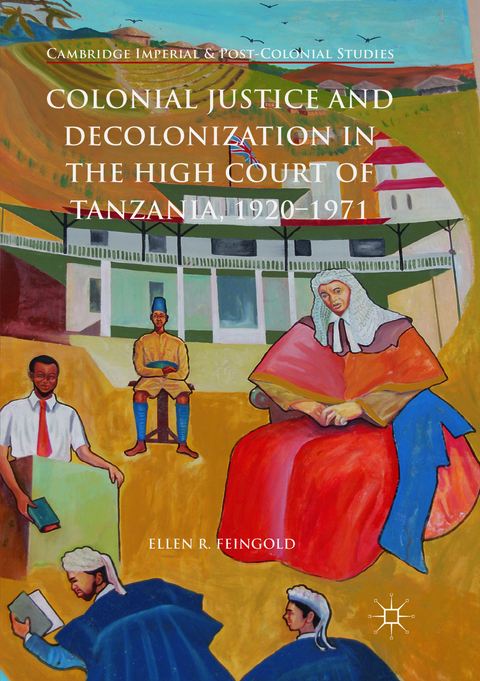
Colonial Justice and Decolonization in the High Court of Tanzania, 1920-1971
Springer International Publishing (Verlag)
978-3-319-88823-1 (ISBN)
This book is the first study of the development and decolonization of a British colonial high court in Africa. It traces the history of the High Court of Tanzania from its establishment in 1920 to the end of its institutional process of decolonization in 1971. This process involved disentangling the High Court from colonial state structures and imperial systems that were built on racial inequality while simultaneously increasing the independence of the judiciary and application of British judicial principles. Feingold weaves together the rich history of the Court with a discussion of its judges - both as members of the British Colonial Legal Service and as individuals - to explore the impacts and intersections of imperial policies, national politics, and individual initiative. Colonial Justice and Decolonization in the High Court of Tanzania is a powerful reminder of the crucial roles played by common law courts in the operation and legitimization of both colonial and post-colonial states.
Ellen R. Feingold completed her DPhil in history at the University of Oxford in 2012. She is a museum curator and also a faculty affiliate of the African Studies Program at Georgetown University.
1. Introduction.- Part I: The High Court of Tanganyika under British Rule, 1920-1958.- 2 Building a Judiciary for the Empire: The Development of the Colonial Legal Service.- 3 The Marginalization of the High Court under Indirect Rule, 1920-1944.- 4 The Resurgence and Expansion of Tanganyika's Judiciary, 1945-1958.- Part II: Decolonizing the High Court of Tanganyika, 1959-1971.- 5 Restructuring Colonial Justice, Empowering the High Court, 1959-1964.- 6 Colonial Judges in a Fading Empire, 1961-1965.- 7 Foreign Judges and the Emergence of a Tanzanian Judiciary, 1964-1971.- 8 Conclusion.
"It is a comprehensible and engaging book, whose chapters are formulated chronologically, which is plausible as the author aims to take the reader through a transitional and developmental period. ... Feingold's methodology and sources enable a thorough inquiry into the multifaceted colonial encounter in the courts of law and of the subsequent disentanglement which aimed to refashion African juridical structures in a way which did not mirror that of the imperial state." (Winner Ijeoma, Rechtsgeschichte - Legal History Rg, Issue 28, 2020)
| Erscheinungsdatum | 06.03.2019 |
|---|---|
| Reihe/Serie | Cambridge Imperial and Post-Colonial Studies |
| Zusatzinfo | XV, 278 p. 12 illus., 8 illus. in color. |
| Verlagsort | Cham |
| Sprache | englisch |
| Maße | 148 x 210 mm |
| Gewicht | 385 g |
| Themenwelt | Geisteswissenschaften ► Geschichte ► Allgemeines / Lexika |
| Geisteswissenschaften ► Geschichte ► Regional- / Ländergeschichte | |
| Geschichte ► Teilgebiete der Geschichte ► Militärgeschichte | |
| Geschichte ► Teilgebiete der Geschichte ► Wirtschaftsgeschichte | |
| Recht / Steuern ► Rechtsgeschichte | |
| Schlagworte | British Empire • foreign policy • High Court • Judges • Justice • Law • National independence • Race • Tanganyika |
| ISBN-10 | 3-319-88823-4 / 3319888234 |
| ISBN-13 | 978-3-319-88823-1 / 9783319888231 |
| Zustand | Neuware |
| Haben Sie eine Frage zum Produkt? |
aus dem Bereich


